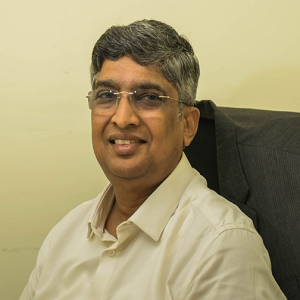"Over the next 20 years, average defined contribution pot sizes are expected to increase by 91%."
There’s no denying it, in the same way fad diets work over the shorter term, simple investment strategies can also provide strong performance when everything works to their advantage. But, over the longer term, the result is likely to be the same for both our physical and financial health – a lack of fuel to power us through retirement. Ongoing investigations of the market for investment consultancy services by the Competition and Markets Authority (CMA) in the UK reinforce this point of view. In a provisional decision report, the CMA stated that they "encourage policymakers to consider how best to address the lower level of engagement by Defined Contributions (DC) schemes in investment matters." But there’s a disconnect between this and the design of DC investment strategies.
Changing Relationship Between Employer and Employee
Rather than the short term objectives, which drive the focus on current thinking in DC pensions, there needs to be an increased focus on investments, with a long-term time horizon and a disciplined set of core principles. This criteria will provide members with the fuel they need for a financially healthy retirement. Below are three key reasons we believe many investment strategies are lacking the ‘nutrition’ they need for the longer term, and why this needs to change.
Deficiency #1: Low Cost = Good Value
There’s no doubt that the current regulatory environment has a strong focus on cost, from the charge cap to value for money assessments. Low cost is also a key driver when selecting a provider. But there’s a key difference between cost and value that’s being missed by the market. This race to the bottom is compromising member outcomes.
Instead, the focus should switch to value – pushing hard on fees, but not compromising on selecting the best investments when they add value for members. An open architecture structure, with transparency on which funds can be used, can help to manage and improve this selection process.
Deficiency #2: A Focus on Cost Means Lack of Diversification
Diversification is said to be “the only free lunch in investments,” but we see a number of investment strategies in the market lacking the balanced nutrition to provide members with a healthy pot at retirement. Whilst we’ve had a market environment over the past 10 years that has broadly been favourable for simple, undiversified strategies, the future is uncertain, with political risk across the globe, uncertainty around the impact of climate change, and DC members who are struggling to save enough for retirement.
There’s a misconception that focusing on cost means you have to invest only in the traditional asset classes – equities and bonds. Not only does this leave members exposed, it also isn’t true. There are a number of more innovative asset classes that tick the box of being both cost-effective and strong diversifiers – emerging markets, infrastructure and property (on a listed basis) to name a few.
On top of this, we believe that set-and-forget long term allocations are leaving money on the table. When you have the right expertise and depth, using a dynamic asset allocation process, adjusting for short to medium term market views, can and does add value by positioning portfolios for all market conditions.
Deficiency #3: Members Move Around – Why Should I Care?
Members will be invested for upwards of 40 years, but on average members will spend 8.6 years at each employer1. So you can see why employers are reticent to spend time, and money, on designing their investment strategies. But if we all took that view, we’d be failing members. Over the next 20 years, average DC pot sizes are expected to increase by 91 percent2. In addition, assets under management in the DC workplace pension market are expected to increase to c. £1.7trn in 20302. Whilst many members may be relying on other sources of income currently, this isn’t going to be the case in the near future, and the shift from DB to DC pensions means more people will be increasingly reliant on their DC pot to fund their retirement.
Most people realise the importance of healthy eating and a balanced diet on their long term health, but often we don’t think they give the same care to investing for retirement. There are a number of reasons and key drivers for this –but these will need to be overcome for us all to have healthy retirements. While investment strategies which fall victim to these deficiencies will falter, and fads will run out of steam, an investment solution based on solid, grounded principles will stand the test of time. Choosing a DC pensions solution that has this at its core is critical. All parties will have a role in this, from members to trustees, pension providers to regulators, and we all need to take action to make sure investments are given the focus they deserve.
1 Oecd -https://stats.oecd.org/Index.aspx?DataSetCode=TENURE_AVE
2 FCA - Retirement Outcomes Review.https://www.fca.org.uk/publication/market-studies/retirement-outcomes-review-interim-report.pdf





 India's NPS has gone through a few iterations and continues to evolve, but the plan is helping to boost retirement savings among Indian citizens. It's also shifting citizens' expectations: Instead of relying on younger family members to support them in their old age, many are now adjusting their savings and preparing to support themselves in their retirement years.
On top of that, NPS is one of the cheapest investment products. Overall costs of the NPS are far lower than those of other products, and it is perhaps the cheapest pension product available.
3 Lessons You Can Learn From India's Model
For organizational leaders around the world, India's experiment in providing a national pension program for all its citizens offers a number of valuable lessons.
1. Unsustainable National Debt Requires New Solutions
Long before the NPS was launched, India's federal and state government employees were covered by a tax-funded defined benefit pension program that provided a 50% replacement wage at retirement with an inflation-linked adjustment. In the mid-1980s, this program cost the country less than $0.5 billion annually, but by 2006, with people living longer, the price tag jumped to more than $600 billion per year.3
Maintaining the program was unsustainable, and leaders realized they needed to develop a replacement program to ensure successful retirements for future workers and protect the nation's finances. Since the launch of NPS, all new government employees have been enrolled in it, fostering a responsibility among workers to prepare for their own retirement and protecting the government from continuing to run up unsustainable pension debt.
2. Tax Advantages Are Key for Supplementary Retirement Savings Plans
Most participants choose to invest in the NPS due to the tax benefits. However, some Indian citizens report that they did not opt for participating in the NPS as they perceived that some mutual fund instruments and private retirement savings vehicles have greater potential to beat the market and also provide better tax benefits.
In order to encourage citizens and promote NPS, the government developed three categories of tax-saving options. The third of these options is exclusively for salaried employees whose contributions are made through the corporate model of NPS. All three categories can be availed together and exclusive of each other.
Moreover, there was a recent relaxation in the tax-free withdrawal limit of corpus allowed at the time of retirement (from an earlier limit of 40% of corpus to 60% of corpus). Originally, though 60% was allowed to be withdrawn, the balance of 20% was taxed at normal rates, and making it entirely tax free has made it even more attractive.
While a few senior executives may have access to other retirement savings plans, including employer-sponsored Defined Contribution superannuation plans, most of the population (particularly among the working class) do not have access to other retirement savings plans, and hence, the tax advantages inherent in NPS are crucial encouragement for them to save for retirement.
3. Citizens Need Education About the Model's Benefits
While the NPS offers a number of benefits to savers, participation rates remain relatively low.4 Some respondents to a recent survey revealed that not understanding the importance of saving and the advantages of compounding interest could have influenced their choice to stay out.
NPS leaders have used a variety of methods for communicating and educating the population about the system. For instance, pilot programs staged in two different geographic areas hosted workshops, meetings and camps targeting unorganized sector workers and key stakeholders. Information was also distributed through cable television networks, radio, mobile publicity vans, seminars and road shows.
India continues to measure the success of its pension program and may make more changes in the future. Many countries are struggling to solve the potential challenge of poverty in old age, but the NPS in India is an encouraging step toward protecting the future for many of its citizens, and it's worth taking a look at the model for inspiration.
Sources:
1. United Nations: Department of Economic and Social Affairs,"World Population Prospects — 2017 Revision: Global life expectancy," United Nations: Department of Public Information, June 21, 2017,
India's NPS has gone through a few iterations and continues to evolve, but the plan is helping to boost retirement savings among Indian citizens. It's also shifting citizens' expectations: Instead of relying on younger family members to support them in their old age, many are now adjusting their savings and preparing to support themselves in their retirement years.
On top of that, NPS is one of the cheapest investment products. Overall costs of the NPS are far lower than those of other products, and it is perhaps the cheapest pension product available.
3 Lessons You Can Learn From India's Model
For organizational leaders around the world, India's experiment in providing a national pension program for all its citizens offers a number of valuable lessons.
1. Unsustainable National Debt Requires New Solutions
Long before the NPS was launched, India's federal and state government employees were covered by a tax-funded defined benefit pension program that provided a 50% replacement wage at retirement with an inflation-linked adjustment. In the mid-1980s, this program cost the country less than $0.5 billion annually, but by 2006, with people living longer, the price tag jumped to more than $600 billion per year.3
Maintaining the program was unsustainable, and leaders realized they needed to develop a replacement program to ensure successful retirements for future workers and protect the nation's finances. Since the launch of NPS, all new government employees have been enrolled in it, fostering a responsibility among workers to prepare for their own retirement and protecting the government from continuing to run up unsustainable pension debt.
2. Tax Advantages Are Key for Supplementary Retirement Savings Plans
Most participants choose to invest in the NPS due to the tax benefits. However, some Indian citizens report that they did not opt for participating in the NPS as they perceived that some mutual fund instruments and private retirement savings vehicles have greater potential to beat the market and also provide better tax benefits.
In order to encourage citizens and promote NPS, the government developed three categories of tax-saving options. The third of these options is exclusively for salaried employees whose contributions are made through the corporate model of NPS. All three categories can be availed together and exclusive of each other.
Moreover, there was a recent relaxation in the tax-free withdrawal limit of corpus allowed at the time of retirement (from an earlier limit of 40% of corpus to 60% of corpus). Originally, though 60% was allowed to be withdrawn, the balance of 20% was taxed at normal rates, and making it entirely tax free has made it even more attractive.
While a few senior executives may have access to other retirement savings plans, including employer-sponsored Defined Contribution superannuation plans, most of the population (particularly among the working class) do not have access to other retirement savings plans, and hence, the tax advantages inherent in NPS are crucial encouragement for them to save for retirement.
3. Citizens Need Education About the Model's Benefits
While the NPS offers a number of benefits to savers, participation rates remain relatively low.4 Some respondents to a recent survey revealed that not understanding the importance of saving and the advantages of compounding interest could have influenced their choice to stay out.
NPS leaders have used a variety of methods for communicating and educating the population about the system. For instance, pilot programs staged in two different geographic areas hosted workshops, meetings and camps targeting unorganized sector workers and key stakeholders. Information was also distributed through cable television networks, radio, mobile publicity vans, seminars and road shows.
India continues to measure the success of its pension program and may make more changes in the future. Many countries are struggling to solve the potential challenge of poverty in old age, but the NPS in India is an encouraging step toward protecting the future for many of its citizens, and it's worth taking a look at the model for inspiration.
Sources:
1. United Nations: Department of Economic and Social Affairs,"World Population Prospects — 2017 Revision: Global life expectancy," United Nations: Department of Public Information, June 21, 2017, 




